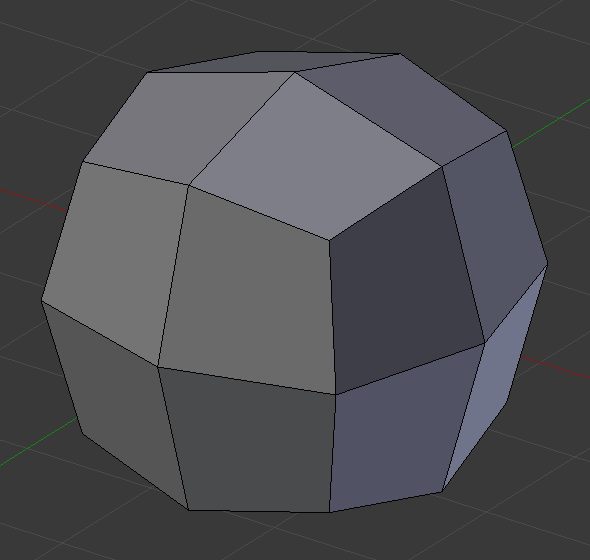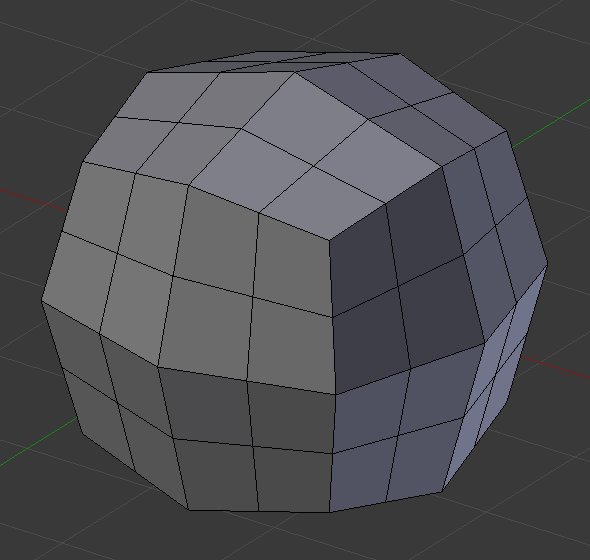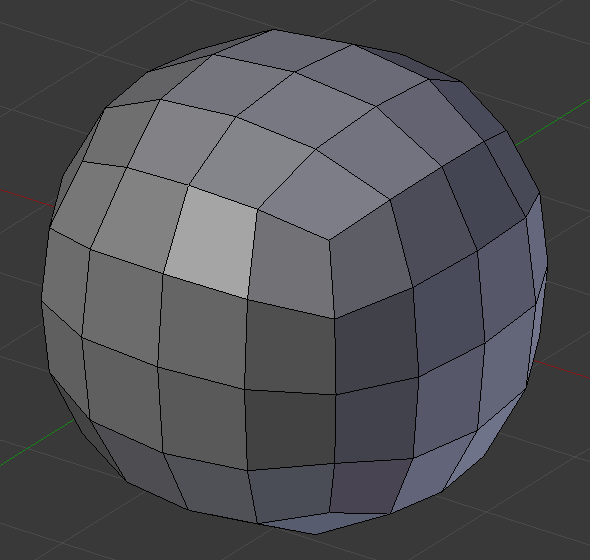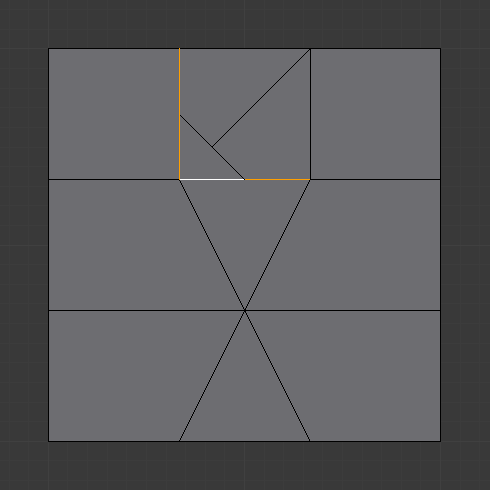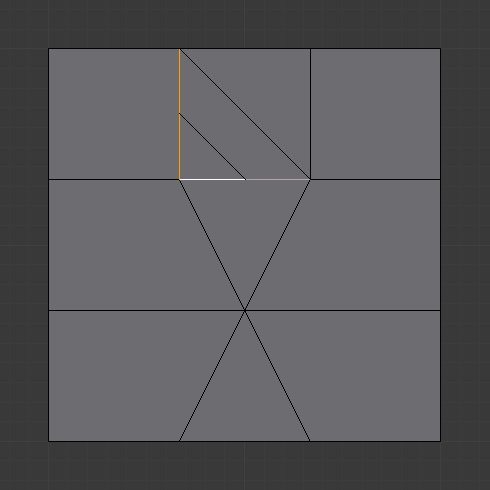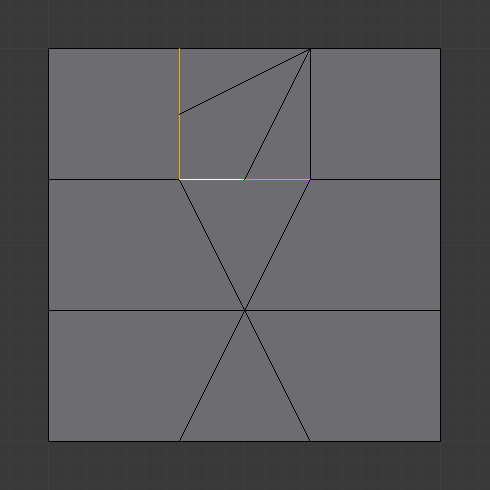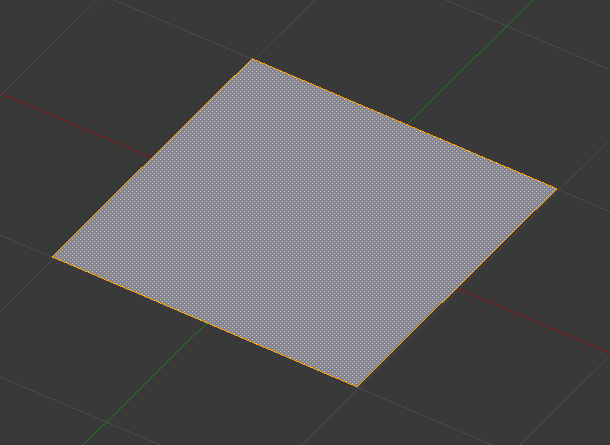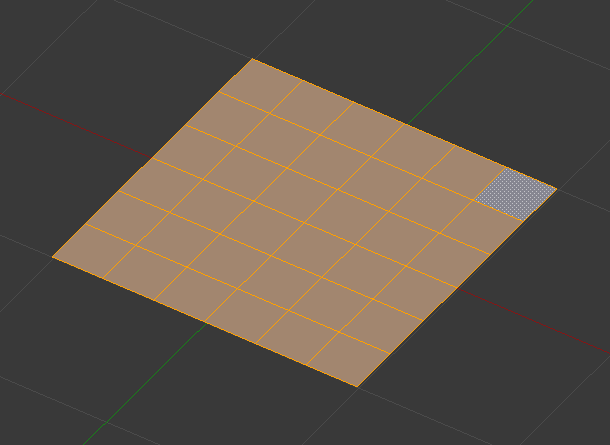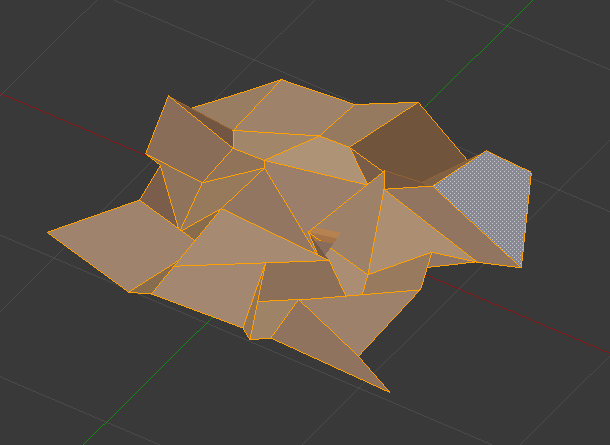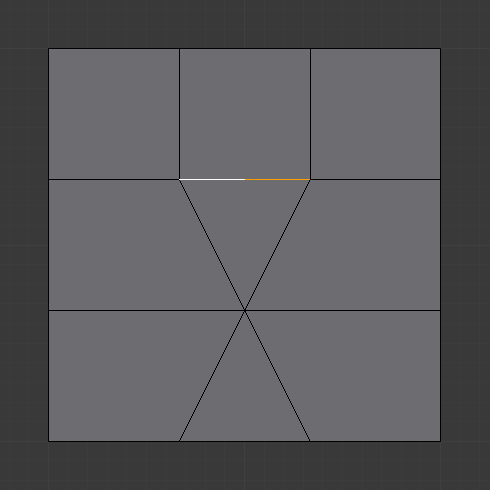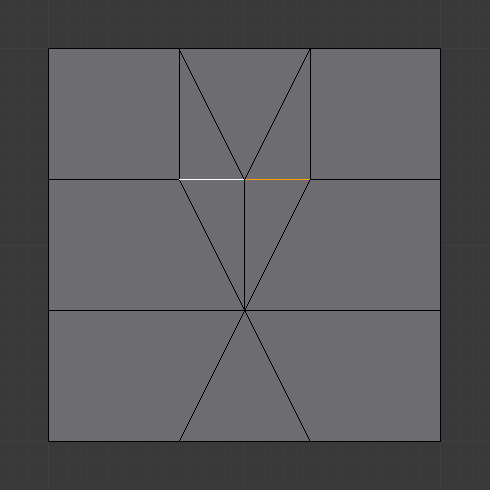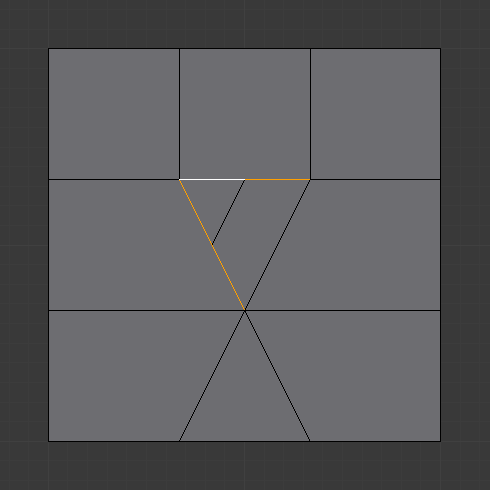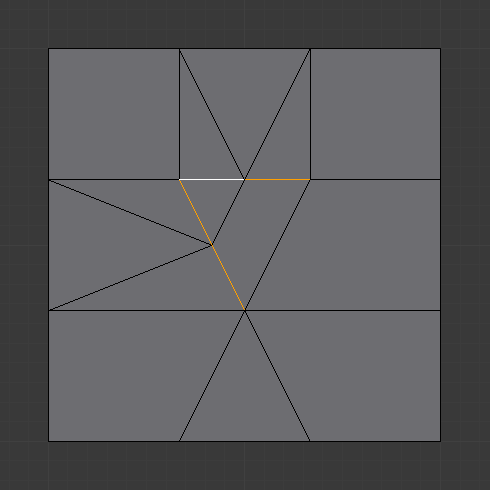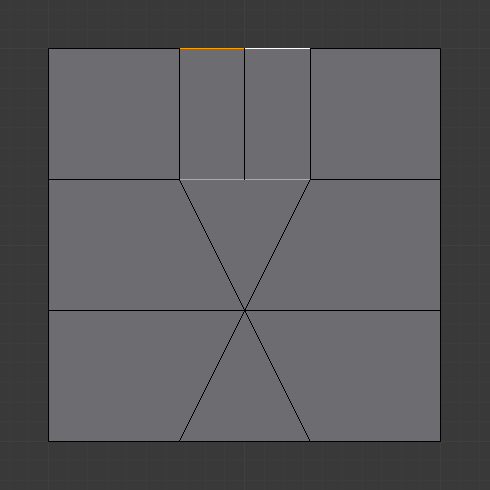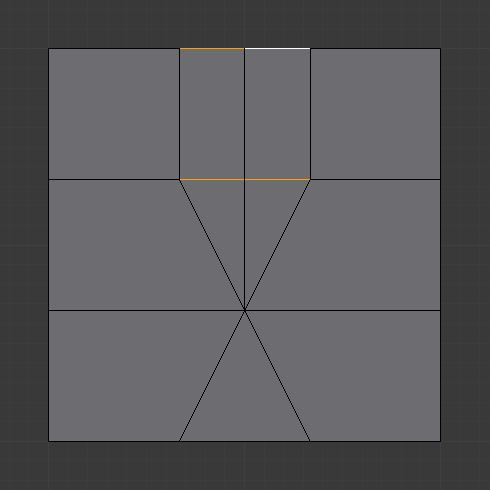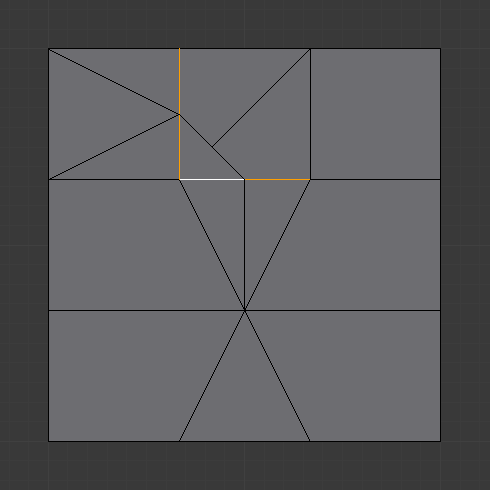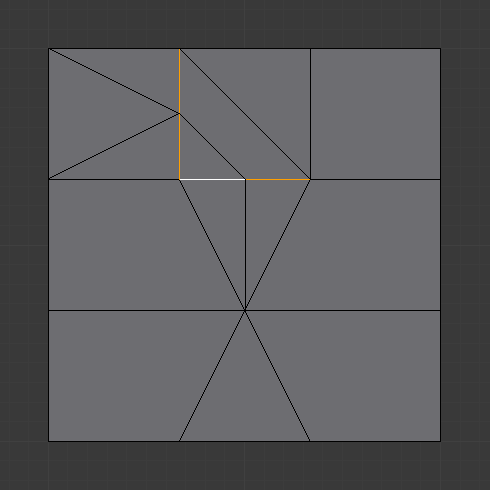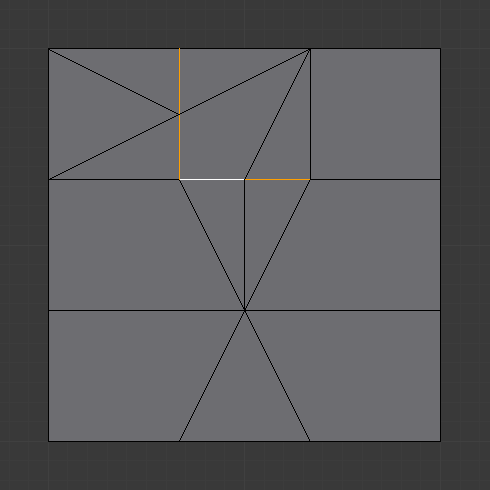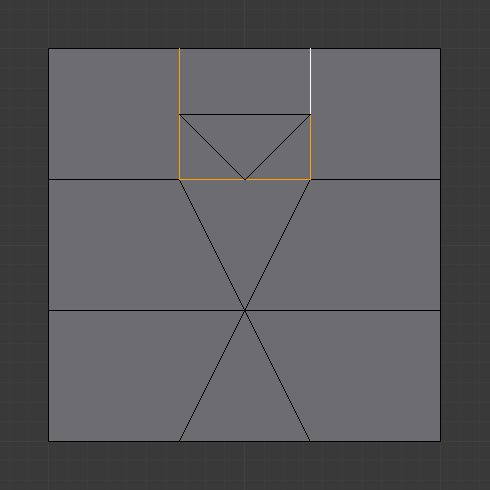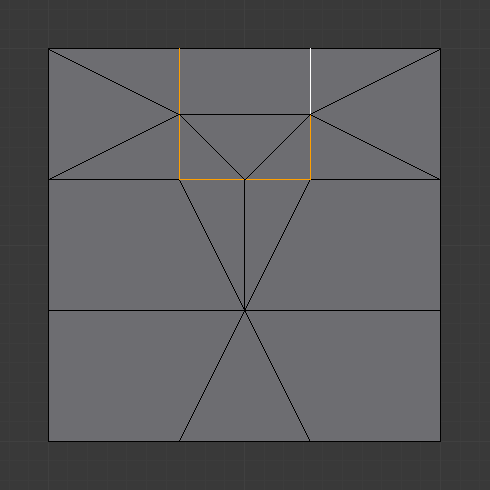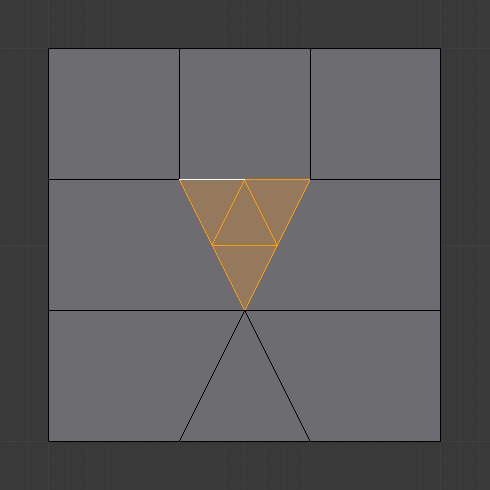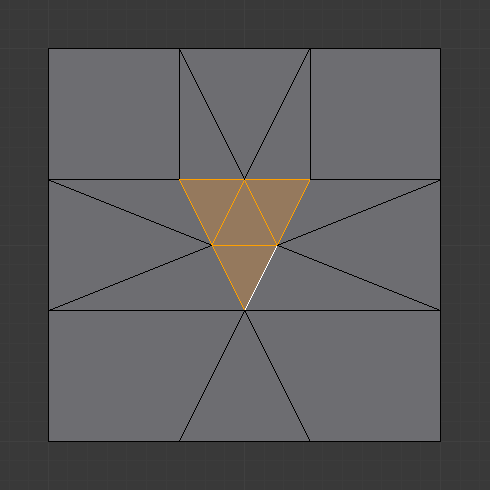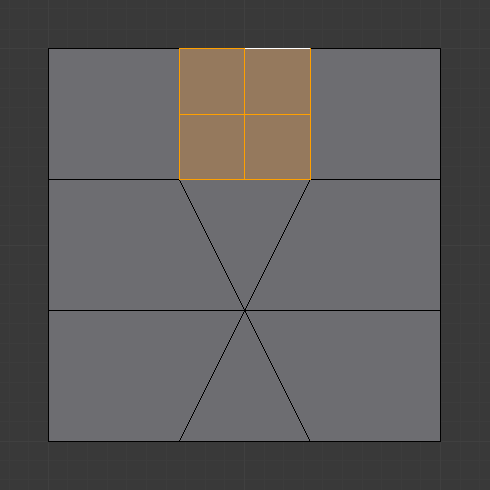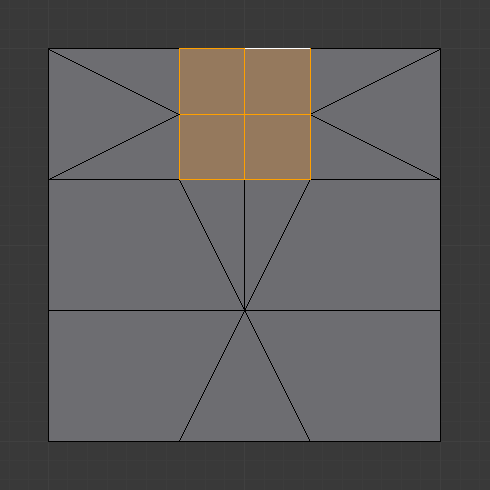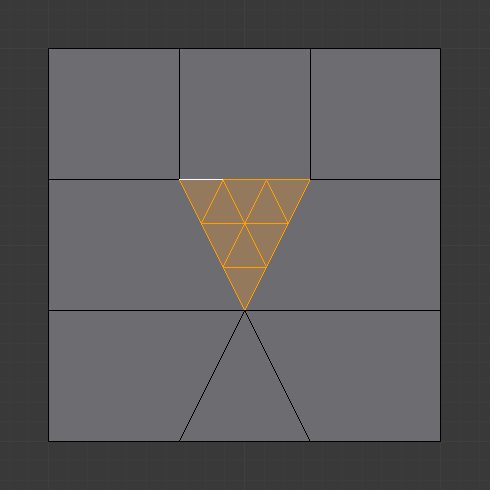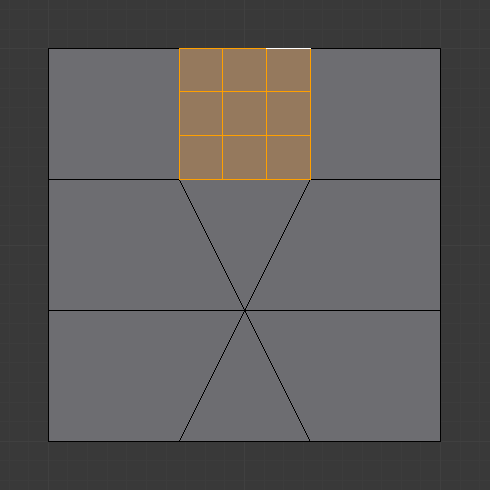Subdivide¶
Refence (Referentie)
- Mode (Modus):
Edit Mode (Bewerkingsmodus)
- Menu:
Subdividing adds resolution to the mesh by dividing faces or edges into smaller units.
This process follows a few rules depending on the situation:
When only one edge of a triangle or quad is selected, that face is turned into a quad or N-gon respectively. If the Create N-Gons option is disabled, the face is split into triangles instead.
When two edges of a face are selected:
If the face is a triangle, a new edge is created between the two new vertices, subdividing the triangle into a triangle and a quad.
If the face is a quad and the edges are neighbors, the face is split according to the Quad Corner Type setting (see below).
If the face is a quad and the edges are opposite, the quad is just subdivided in two quads by the edge linking the two new vertices.
When three edges of a face are selected:
If the face is a triangle, this means the whole face is selected and it is subdivided into four smaller triangles.
If the face is a quad, first the two opposite edges are subdivided as described above. Then, the “middle” edge is subdivided, affecting its new “sub-quad” as described above for only one edge.
When all four edges of a quad are selected, the face is subdivided into four smaller quads.
When one or more edges of an N-gon are selected, the individual edges will be subdivided but the face will stay unsubdivided.
Options (Opties)¶
These options are available in the Adjust Last Operation panel after running the operator:
- Number of Cuts
The number of cuts per edge to make. By default this is 1, cutting edges in half. A value of 2 will cut them into thirds, and so on.
- Smoothness
Displaces subdivisions to maintain approximate curvature. The effect is similar to the way the Subdivision Surface Modifier might deform the mesh.
- Create N-Gons
When unchecked, forces the subdivision to create triangles or quads instead of n-gons (see examples below).
- Quad Corner Type
Controls the subdivision for quads with two selected, neighboring edges.
- Inner Vertices
The selected edges are subdivided, then an edge is created between the two new vertices, creating a small triangle. This edge is also subdivided, and the “inner vertex” thus created is linked by another edge to the one opposite to the original selected edges. This results in a triangle and two quads.
- Path (Pad)
The selected edges are subdivided, then new edges are created between the new vertices as well as the existing outer vertices. This results in two triangles and a quad.
- Straight Cut
The selected edges are subdivided, then an edge is created between the two new vertices, creating a small triangle and N-gon. If Create N-Gons is unchecked, this option works like Inner Vertices instead.
- Fan
The quad is subdivided into a fan of a quad and two triangles, the common vertex being the one opposite to the selected edges.
- Fractal
Displaces the vertices in random directions after the mesh is subdivided.
- Along Normal
Causes the vertices to move along their normals, instead of random directions.
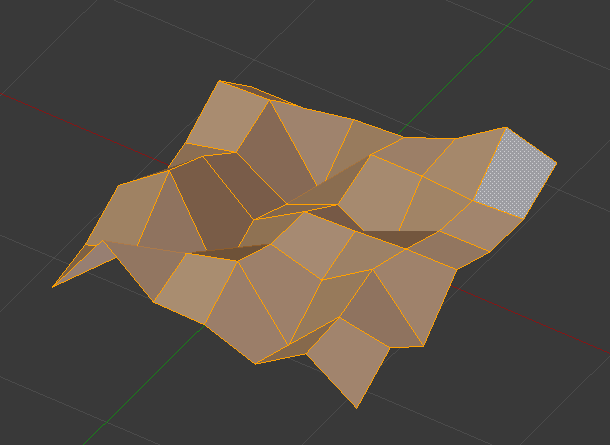
Along Normal set to 1.¶
- Random Seed
Changes the random seed of the Fractal noise function, producing a different result for each seed value.
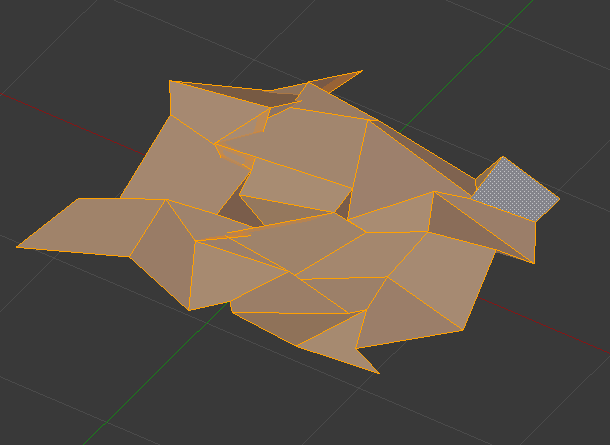
Same mesh with a different seed value.¶
Examples (Voorbeelden)¶
Below are some examples illustrating edge subdivision in various scenarios.
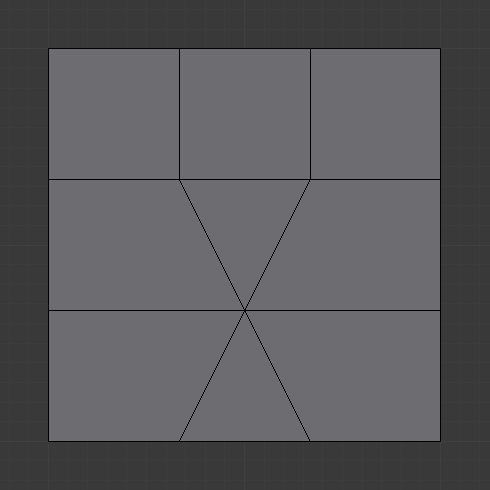
The sample mesh.¶
